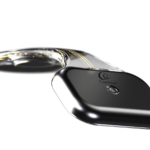The first global consensus on the use of cochlear implants for the management of bilateral moderate to profound, or moderate sloping to profound hearing loss in adults was published online on August 27, 2020 in JAMA Otolaryngology Head and Neck Surgery.1
According to Professor Craig Buchman, Chair of the Consensus Delphi Process and Head of Otolaryngology –Washington University School of Medicine, the consensus is a major landmark in the treatment of hearing loss.
“The International Consensus Paper is the culmination of a systematic review and a consensus process, put together to inform steps towards establishing clear and consistent guidelines, and best practices for the evaluation and management of patients with moderate to profound, or worse, sensorineural hearing loss, including cochlear implants and their aftercare, so they can reach their optimal hearing outcome and attain the best quality of life.”
The paper covers seven categories across the whole care path.
Representatives from seven cochlear implant user and professional advocacy organizations provided comments throughout the process. One of the representatives, Barbara Kelley, President of the Hearing Loss Association of America described the consensus as a call to action for those involved in organising, delivering and receiving hearing health care.
“Globally, for up to 53 million hard of hearing people hearing aids might not be enough. The consensus empowers them to explore their opportunities with cochlear implant treatment” added Barbara Kelley.
Conservative estimates suggest that worldwide, only 1 in 20 adults who could benefit from a cochlear implant have one.2,3
About the consensus method
The process was guided by the non-voting Chair, Professor Buchman, supported by four voting steering committee members. The Delphi panel comprised of an additional 26 experts in the field of CI use, including audiologists and ear, nose and throat specialists across 13 countries. The seven representatives from international hard of hearing, CI user and professional advocacy organisations provided comments throughout the process.
Learn more
Read the scientific publication.
Register to attend the recorded Audiology Online course featuring Delphi panel members René Gifford, PhD and Terry Zwolan, PhD.
Visit the online professional portal with summaries of the evidence supporting the global consensus as well as more information on the CAPAC www.adulthearing.com
References
- Buchman et al. JAMA Otolaryngology Head and Neck Surgery1.2020
- Sorkin DL. Cochlear implantation in the world’s largest medical device market: utilization and awareness of cochlear implants in the United States. Cochlear implants international. 2013 Mar 1;14(sup1):S12-4.
- De Raeve L. Cochlear implants in Belgium: Prevalence in paediatric and adult cochlear implantation. European annals of otorhinolaryngology, head and neck diseases. 2016 Jun 1;133:S57-60.
The Delphi process and medical writing support have been funded by Advanced Bionics, Cochlear Ltd, MED-EL and Oticon Medical. The funding organizations did not contribute to the design, facilitation or content of the Delphi consensus process.


